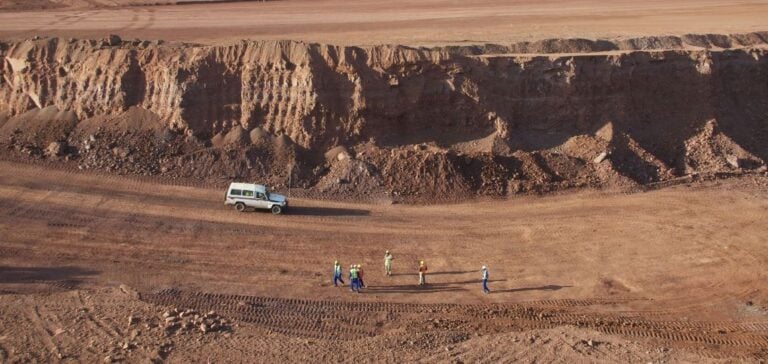Orano, a major global uranium player, has suspended its extraction expenses in Niger. This measure, announced in a statement, follows a meeting of the board of directors of Somaïr (Société des Mines de l’Aïr) on November 12, 2024. Somaïr is a subsidiary 64.3% owned by Orano and 36.6% by the Nigerien state.
The decision stems primarily from persistent export blockages. Since June, the closure of borders between Niger and Benin has paralyzed the transportation of uranium. Somaïr has accumulated a stockpile of 1,050 tons of uranium concentrate, representing nearly €300 million, according to Orano.
Conflict with the Nigerien junta
Tensions between Orano and the military junta, which came to power following the July 2023 coup, have exacerbated the crisis. In October, Orano had already suspended production, citing Somaïr’s “growing financial difficulties.” These difficulties are partly attributed to the junta’s withdrawal of a mining permit for the Imouraren deposit, one of the world’s largest uranium reserves.
The junta, for its part, disputes the legitimacy of this suspension, accusing Orano of acting unilaterally without prior consultation. In response, representatives of Sopamin (Société du Patrimoine des Mines du Niger) abstained from voting during the board meeting.
A strategic reorientation
Orano has declared its intention to redirect available cash flow toward salary payments and the maintenance of essential site operations. This move aims to sustain minimal activity until tensions are resolved.
In this climate, Niger is exploring alternative partnerships. Niger’s Minister of Mines, Ousmane Abarchi, recently stated that discussions have begun with Russian and Iranian companies during the Russia-Africa Summit in Sochi. This strategic shift highlights a desire to diversify international collaborations and gain greater control over local resource exploitation.
A strategic challenge for France
Orano’s capital is 90% owned by the French state, making the company a key player in France’s nuclear energy strategy. The situation in Niger presents a major geopolitical challenge for Paris, given the strategic importance of Nigerien uranium for the nuclear sector.
The Nigerien junta’s desire to renegotiate contracts with foreign companies could disrupt established balances by favoring new partnerships. This reorientation, combined with export restrictions, raises uncertainties about the future of mining operations in the region.






















